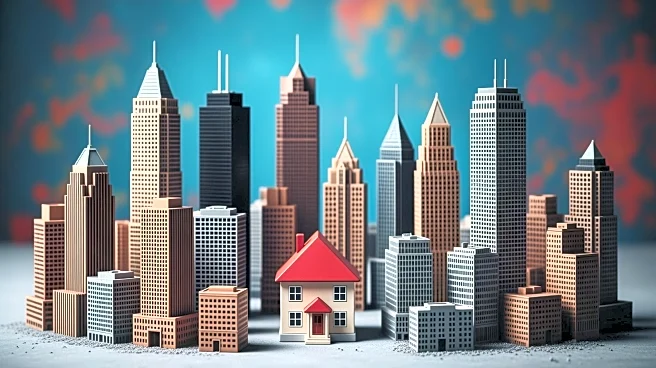What's Happening?
Recent data from Realtor.com indicates a significant interest in the Missoula housing market from various major U.S. metropolitan areas. The scarcity of homes on the market nationwide, which remains below
pre-pandemic levels, has kept home prices elevated despite a slowdown in sales over the past year. This trend has led to increased online house hunting, with 97% of homebuyers utilizing online platforms according to a 2021 National Association of Realtors report. The cross-market demand data from Q3 2025 highlights that Phoenix, AZ, leads with an 18.4% view share of Missoula properties, followed by Denver, CO, at 8.3%, and Seattle, WA, at 5.7%. Other notable metros include Los Angeles, CA, and Chicago, IL, with view shares of 4.1% and 2.7%, respectively.
Why It's Important?
The heightened interest in Missoula from major metros underscores the ongoing challenges in the U.S. housing market, particularly the imbalance between supply and demand. As home prices remain high due to limited inventory, potential buyers from larger cities are exploring options in smaller markets like Missoula. This trend could lead to increased competition and further price hikes in these areas, impacting local affordability. Additionally, the movement of buyers from high-cost areas to more affordable regions may influence demographic shifts and economic dynamics in these smaller communities, potentially driving growth and development.
What's Next?
As interest in Missoula continues to grow, local real estate markets may experience increased pressure to accommodate the influx of potential buyers. This could lead to new housing developments and infrastructure improvements to support the growing population. Real estate agents and developers in Missoula may need to strategize on how to best meet the demand while maintaining affordability for local residents. Additionally, policymakers might consider measures to address housing shortages and ensure sustainable growth in the region.
Beyond the Headlines
The trend of buyers from larger metros moving to smaller cities like Missoula may reflect broader societal shifts, including remote work flexibility and lifestyle changes post-pandemic. This could lead to cultural exchanges and diversification in these communities, influencing local businesses and services. Moreover, the increased demand for housing in smaller markets might prompt discussions on urban planning and environmental sustainability as these areas adapt to new growth patterns.








